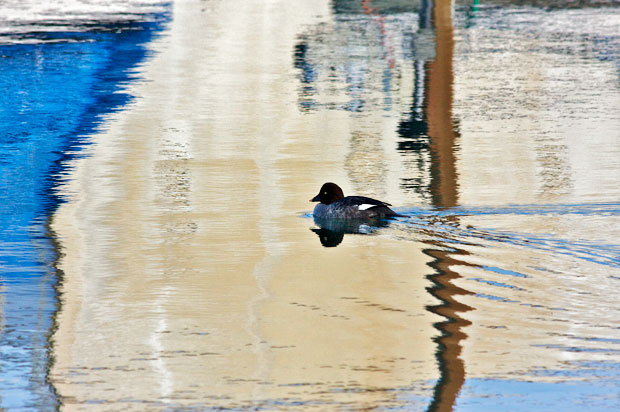I’ve been reading One Robe, One Bowl: The Zen Poetry of Ryōkan translated by John Stevens, and I’ll have to admit that my biggest complaint is simply that the book, at 85 pages, is too short. If I’d looked at in a bookstore rather than ordering it from Amazon, I doubt I would have paid $12.95 for it.
That said, I do like many of the poems. In fact, I have even ordered another book with a larger selection of Ryōkan’s poems, one I’ll review later.
My favorite poems are probably concrete ones like this
After a night of rain, water covers the village path.
This morning the thick grass by my hut is cool.
In the window, distant mountains the color of blue-green jade.
Outside, a river flows like shimmering silk.
Under a cliff near my hut, I wash out my sore ear with pure spring water.
In the trees, cicadas recite their fall verse.
I had prepared my robe and staff for a walk,
But the quiet beauty keeps me here.
that resonate with my own feelings. Of course, you already knew that I often find my yard as appealing as Nisqually, Belfair or even Point Defiance if you look at the relative number of shots I take in my own yard. Sitting quietly on the front porch watching the hummingbirds dart hither and yon is actually one of my favorite endeavors.
But I also like several of Ryōkan’s more abstract poems that remind us that he was a Buddhist monk:
BUDDHA is your mind
And the Way goes nowhere.
Don’t look for anything but this.
If you point your cart north
When you want to go south,
How will you arrive?
I don’t know about arriving at enlightenment, but I love the last three lines. I wish I’d known this poem when I was teaching!
Although most of Ryōkan’s poems included in the colllection are not haiku, the last section does include several haiku like this one
What is the heart of this old monk like?
A gentle wind
Beneath the vast sky.
that seems as good as any I’ve read anywhere.
Like this:
Like Loading...


